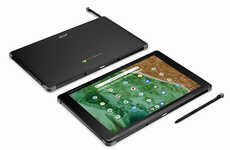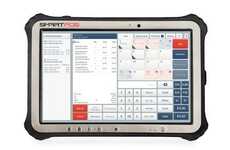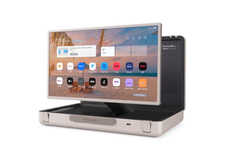
The Google-Sponsored Tablet Cafe in Dakar Improves Internet Access
Laura McQuarrie — July 21, 2013 — Tech
References: google-africa.blogspot & treehugger
Computer access can be hard to come by in remote areas of Africa, so Google recently sponsored the first tablet cafe in Dakar, Africa to make the Internet more accessible. Constantly running computers can consume a lot of power, making cyber cafes costly to operate and to use. As well, slow Internet access can be frustrating, especially for first-time computer users.
Using tablets in the place of desktop computers is an easy way to remedy a lot of these problems. Google replaced all 15 of the ‘Equniox’ cafe’s computers with portable tablet devices. Use of the devices is fairly intuitive, even for new users. And now, the money saved on operating power-hungry computers can now be put towards improving the Internet connection speed.
Using tablets in the place of desktop computers is an easy way to remedy a lot of these problems. Google replaced all 15 of the ‘Equniox’ cafe’s computers with portable tablet devices. Use of the devices is fairly intuitive, even for new users. And now, the money saved on operating power-hungry computers can now be put towards improving the Internet connection speed.
Trend Themes
1. Tablet-only Cafes - The adoption of tablet devices over desktop computers is an emerging trend in providing a more efficient and cost-effective solution for improving internet access in remote areas.
2. Portable Device Sponsorship - The trend of sponsoring portable devices such as tablets for remote areas by larger companies such as Google is a disruptive innovation opportunity.
3. Intuitive Device Use - The trend of using intuitive portable devices such as tablets encourages new users to become more comfortable with technology and can create opportunities for innovative user experiences and designs.
Industry Implications
1. Technology - The technology industry can benefit from creating more efficient and intuitive portable devices for improving internet access in remote areas.
2. Hospitality - The hospitality industry could take advantage of the tablet-only cafe trend by offering similar services to customers in remote areas, as well as potentially integrating tablet technology into their own operations.
3. Non-profit - The non-profit industry could partner with larger companies to provide tablet devices and promote digital literacy in remote communities, as it is a more cost-effective solution than the traditional desktop computer model.
1.3
Score
Popularity
Activity
Freshness























